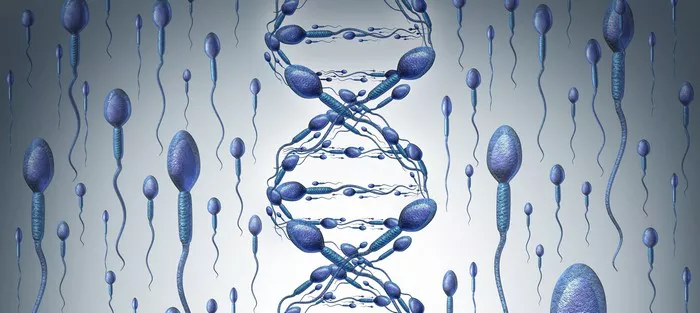Masturbation is a common sexual activity involving self-stimulation of the genitals, often resulting in orgasm. Infertility, on the other hand, is defined as the inability to conceive after one year of regular, unprotected intercourse. A common misconception exists that masturbation can lead to male infertility. This article aims to dispel this myth and provide a comprehensive understanding of how masturbation affects male fertility.
First and foremost, it’s important to assure readers that masturbation does not cause infertility. The idea that masturbation could negatively impact a man’s ability to father children is a myth rooted in misinformation and societal taboos surrounding sexual health. In fact, masturbation is a natural and harmless activity that most men engage in at some point in their lives.
See also: What Can Increase a Man’s Risk of Infertility
Sperm Production and Ejaculation
To understand why masturbation does not cause infertility, it’s crucial to comprehend how sperm production and ejaculation work. Sperm production, or spermatogenesis, occurs in the testicles. This complex process involves several stages:
Spermatogonia: These are the primitive sperm cells that divide and differentiate into mature sperm.
Primary and Secondary Spermatocytes: These cells undergo meiotic divisions to reduce the chromosome number by half, ensuring genetic diversity.
Spermatids: These immature sperm cells undergo a series of changes, including the development of tails, to become mature spermatozoa.
This entire process takes about 64 days, ensuring a continuous supply of sperm. The male reproductive system produces millions of sperm daily, stored in the epididymis, a coiled tube attached to the back of the testicles.
Ejaculation is the expulsion of semen, which contains sperm, from the penis. This process is triggered by sexual arousal and involves a series of muscular contractions. Semen, produced by the seminal vesicles, prostate gland, and bulbourethral glands, provides the sperm with nutrients and a medium for transport.
Frequency of Ejaculation and Sperm Count
Sperm count can fluctuate based on several factors, including the frequency of ejaculation. Some studies suggest that very frequent ejaculation (more than once a day) may cause a slight decrease in sperm count. However, it’s important to note that even with frequent ejaculation, sperm count remains well within the normal range for fertility.
The World Health Organization (WHO) defines a normal sperm count as 15 million sperm per milliliter of semen or more. While frequent ejaculation might reduce this number temporarily, it does not drop to levels that would cause infertility. The body continuously produces sperm, and any reduction in sperm count due to frequent ejaculation is typically temporary.
Conversely, other studies show no significant impact on sperm count with normal masturbation frequency. In fact, regular ejaculation can be beneficial for sperm health by reducing the risk of DNA damage and maintaining the overall quality of sperm. Thus, the occasional fluctuation in sperm count due to frequent masturbation does not have a lasting impact on male fertility.
See also: Why Male Infertility is on the Rise
Fertile Window and Masturbation
The fertile window refers to the days in a woman’s menstrual cycle when conception is most likely. This period usually spans from five days before ovulation to the day of ovulation itself. Timing intercourse during this window can increase the chances of pregnancy.
While trying to conceive, couples may focus on having intercourse during the fertile window and potentially avoid frequent ejaculation outside this period to maximize sperm count. This strategy can help ensure that a higher concentration of sperm is available during the most fertile days, potentially increasing the chances of conception.
However, this does not imply that masturbation or frequent ejaculation outside the fertile window is harmful or reduces fertility. The male reproductive system is highly efficient and capable of replenishing sperm reserves quickly.
Conclusion
In conclusion, masturbation does not cause infertility. The belief that it can harm male fertility is a myth unsupported by scientific evidence. Masturbation is a normal, healthy sexual activity that has no detrimental effects on a man’s ability to father children.
Moreover, masturbation has several potential benefits for sexual health and well-being, including stress relief, improved mood, and better sleep. It can also help men become more familiar with their bodies and sexual responses, contributing to healthier sexual relationships.
Men who have concerns about their fertility should consult a healthcare provider to address any underlying issues rather than worry about the effects of masturbation. Overall, maintaining a healthy lifestyle, including regular exercise, a balanced diet, and managing stress, is more important for fertility than worrying about the frequency of masturbation.
Related Topics:
Obesity and Male Infertility: How Weight Can Impact Fertility?

























